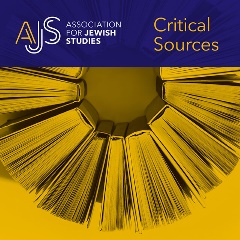
The Critical Sources podcast series features Jewish studies scholars discussing a source that matters to them, offering a window into how scholars seek evidence, ask questions, and interpret the past and present.
Host Avinoam Patt asks five different scholars to discuss a source—a poem, a speech, an object—that’s been on their mind since the October 7 massacre in southern Israel and in the months of war following it. How did they think about
it before October 7, and what has it meant to them since?
Episode 1: Derek Penslar
Episode 2: Vanessa Ochs
Episode 3: Arie Dubnov
Episode 4: Michal Kravel-Tovi
Episode 5: Elisheva Baumgarten
Derek Penslar discusses Chaim Nachman Bialik's Kishinev poems, and what they have meant to him in the past and today.
On the Slaughter
In the City of Slaughter
The Yiddish Book Center Bialik Resource Kit
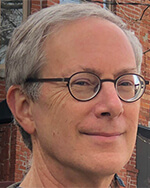
Derek Penslar is the William Lee Frost Professor of Jewish History and the Director of the Center for Jewish Studies at Harvard University. He is also the interim director of undergraduate studies in the Department of History. Derek’s research has engaged with a variety of approaches and methods, including the history of science and technology, economic history, military history, biography, post-colonial theory, and the history of emotions. Derek’s most recent book is Zionism: An Emotional State (2023), and he is currently writing a book about worldwide reactions to the 1948 Palestine War. Derek is a Fellow of the Royal Society of Canada, past president of the American Academy for Jewish Research, and an Honorary Fellow of St. Anne’s College, Oxford.
Vanessa Ochs discusses Shabbat tables, missing chairs, and new or remade rituals that emerged in the wake of October 7.
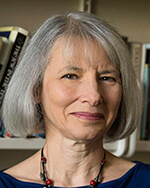
Rabbi Vanessa Ochs, PhD, Professor Emeritus of Religious Studies at UVA, is the '23-24 Rabbi Sally Preisand Visiting Professor at HUC-JIR. She is the author of many books, including The Passover Haggadah: A Biography, and Inventing Jewish Ritual.
Arie Dubnov considers Moshe Dayan's 1956 eulogy in the memory of Ro'i Rotberg, who was killed by Palestinians on a kibbutz in the south of Israel to ask what that iconic speech tells us about neighbors, borders, and the Israeli nation-building project.
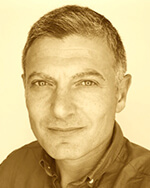
Arie M. Dubnov is the Max Ticktin Chair of Israel Studies at George Washington University. Trained in Israel and the U.S., he is a historian of twentieth century Jewish and Israeli history, with emphasis on the history of political thought, the study of nationalism, decolonization and partition politics, and with a subsidiary interest in the history of Israeli popular culture.
Drawing on a comparison to activism in Bosnia and Herzegovina, Michal Kravel-Tovi explores how civil societies in Israel and elsewhere confront the absence of state structures.
Learn more about the article “Interpellating the State: Activists Seek Political Authority in Postwar Bosnia and Herzegovina” by Larisa Kurtović in the November 2019 issue of American Ethnologist.
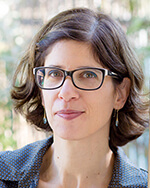
Michal Kravel-Tovi is an associate professor of socio-cultural anthropology at the department of sociology and anthropology at Tel Aviv University, and is a 2023–2024 Fellow at the Institute for Advanced study in Berlin. Her work lies at the intersection of political anthropology, anthropology of religion, and Jewish studies. She is the author of When The State Winks: The Performance of Jewish Conversion in Israel (a winner of a 2018 Jordan Schnitzer award, and a 2018 Clifford Geertz honorary mention), and the co-editor (together with Deborah Dash Moore) of Taking Stock: Cultures of Enumeration in Contemporary Jewish Life.
Elisheva Baumgarten discusses the ever changing concept of “Home” through two different medieval texts about the Jews who settled in Speyer, Germany.
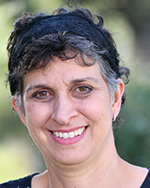
Elisheva Baumgarten is the Yitzchak Becker Professor of Jewish Studies and teaches in the Department of Jewish History and the Department of History at the Hebrew University of Jerusalem. She also serves as the academic head of the Joseph, Jack, and Morton Mandel School for Advanced Studies in the Humanities at HUJI. Her research focuses on the Jews of medieval Ashkenaz in the High Middle Ages and she is currently running the Israel Science Foundation funded Research Group: Contending with Crises: The Jews in XIVth Century Europe. Her latest book is Biblical Women and Jewish Daily Life in Medieval Europe (University of Pennsylvania Press, 2022), winner of a 2022 National Jewish Book Award.
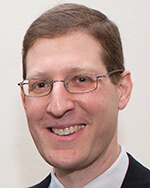
Avinoam Patt
Avinoam J. Patt is the Maurice Greenberg Professor of Holocaust Studies at New York University. He previously held the Doris and Simon Konover Chair of Judaic Studies at the University of Connecticut, where he served as Director of the Center for Judaic Studies and Contemporary Jewish Life. From 2007-2019 he was the Philip D. Feltman Professor of Modern Jewish History at the University of Hartford, where he served as director of the Museum of Jewish Civilization and also worked previously as the Applied Research Scholar for Jewish Life and Culture at the United States Holocaust Memorial Museum. He is the author of multiple books on Jewish responses to the Holocaust, including Finding Home and Homeland: Jewish Youth and Zionism in the Aftermath of the Holocaust (2009); co-editor of a collected volume on Jewish Displaced Persons, titled We are Here: New Approaches to the Study of Jewish Displaced Persons in Postwar Germany (2010); and is a contributor to several projects at the USHMM including Jewish Responses to Persecution, 1938–1940 (2011). He recently completed a new book on the early postwar memory of the Warsaw Ghetto Uprising, The Jewish Heroes of Warsaw: The Afterlife of the Revolt (2021). Together with David Slucki and Gabriel Finder, he is co-editor of Laughter After: Humor and the Holocaust (2020) and, with Laura Hilton, Understanding and Teaching the Holocaust (2020). His newest book, Israel and the Holocaust, was published by Bloomsbury Press as part of its Perspectives on the Holocaust series in February 2024. In Spring 2022, he created and facilitated a new one-credit pop-up course at the University of Connecticut, "Why the Jews: Confronting Antisemitism," which reached over 1600 students in the first semester it was offered.
Executive Producers: Lila Corwin Berman, Ari Y. Kelman, and Avinoam Patt
Producer: Noam Osband